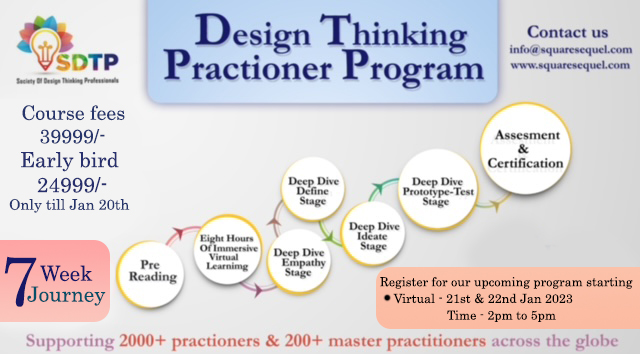“If you cannot see where you are going, ask someone who has been there before.”
— J Loren Norris
In a world filled with endless possibilities and opportunities, it is commonly encountered to find ourselves standing at crossroads, unsure of which path to take. Life’s journey is often riddled with challenges and uncertainties, and navigating it alone can be daunting. This is where mentorship shines as a guiding light, illuminating the path to success and personal development.
As the wise quote by Jodie Foster suggests, “Seeking guidance from someone who has walked the path before can make all the difference.” It is a powerful testament to the transformative influence of mentorship. Throughout history, individuals seeking to achieve greatness have turned to mentors, recognizing that the wisdom and experience of those who have already trodden similar paths can provide invaluable insights and propel them toward success.
Mentorship is not a one-sided transaction, however, a mutual exchange of wisdom, growth, and inspiration. The mentor-mentee relationship thrives on trust, respect, and genuine care. As a mentee, we demonstrate humility, recognizing that we don’t have all the answers and that seeking guidance is a strength, not a weakness. In turn, mentors find fulfillment in nurturing the potential they see within their mentees, and witnessing their mentees thrive becomes a source of pride and gratification.
A study of 1000 employees by Gartner says, “Employees who participated in a mentorship program saw a salary-grade increase of 25 percent, compared to only 5 percent of those who did not. Employee retention was higher for mentees (22 percent higher) and mentors (20 percent higher) than for employees who did not participate in a mentoring program.
In a world that celebrates individualism, mentorship serves as a reminder that collective wisdom is an invaluable resource. It allows us to stand on the shoulders of giants, benefitting from the cumulative knowledge of those who have come before us. As the African proverb states, “If you want to go fast, go alone. If you want to go far, go together.”
In the pursuit of our goals, we may encounter naysayers and doubters, however, having a mentor in our corner reinforces our self-belief. Their encouragement bolsters our confidence, empowering us to take bold steps and embrace new challenges with courage and conviction. The bond between a mentor and mentee fosters an environment of continuous learning, where curiosity is nourished, and intellectual curiosity thrives.
In the journey of personal and professional development, being a mentee gives you a chance to look at a particular situation with new perspectives. We have relied on the wisdom and guidance of others from the beginning of time. We constantly see and hear stories about the benefits of mentoring or being mentored, however, do we actually recognize the worth of being a mentee in our lives?
Let’s take a deep dive into the significance of being a mentee, and the dynamics of a successful mentor-mentee relationship.
What Is A Mentee?

“If you wish to be a great teacher, be a great student first. If you wish to be a great leader, be a great follower first.”
― Hrishikesh Agnihotri
A mentee is someone who willingly seeks out the counsel and knowledge of a mentor – a person with more experience, expertise, and insights in a domain that the mentee aims to explore or excel in. The role of a mentee is to absorb, learn, and implement the advice provided by the mentor to advance their own personal and professional journey. It is essential to understand that being a mentee is not a sign of weakness but rather a testament to one’s eagerness to learn and grow.
As Elizabeth Gilbert once stated: “A mentor is someone who sees more talent and ability within you, than you see in yourself, and helps bring it out of you.”
The mentee’s journey begins with embracing the role of a student, acknowledging that there is always more to discover and absorb. A mentee demonstrates a thirst for knowledge, seeking out guidance and insights from their mentor with genuine curiosity and enthusiasm. Just as a student devours every word of a captivating book, a mentee absorbs every morsel of wisdom offered by their mentor, understanding that each lesson is a stepping stone toward their personal and professional growth.
Moreover, the journey of a great mentee involves understanding the value of mentorship as a reciprocal relationship. Just as a leader invests in their followers, mentors invest their time, expertise, and genuine care in their mentees. A great mentee acknowledges and appreciates the mentor’s dedication, expressing gratitude for the impact they have on their life. This mutual respect and gratitude create a powerful synergy, reinforcing the mentor-mentee bond and fostering an environment conducive to growth and development.
Satya Nadella joined Microsoft in 1992 and steadily climbed the ranks within the company. He became known for his relentless pursuit of knowledge and continuous learning. He actively sought out mentors and was known to be an avid reader, constantly exploring new ideas and industry trends. Throughout his journey, he absorbed insights and wisdom from senior leaders within Microsoft, acknowledging that his success depended on being receptive to guidance and learning from those with more experience.
Nadella’s passion for learning and his willingness to be a great follower paid off significantly. As he gained more responsibilities, his commitment to personal and professional growth became evident in his leadership style. He demonstrated empathy, humility, and a growth mindset – qualities he had learned from his mentors. These traits endeared him to his colleagues and created a positive work culture within Microsoft.
In 2014, Satya Nadella was appointed as the third CEO of Microsoft. His journey from being a great learner and follower to becoming a great leader became an inspiration to many. As CEO, he continued to foster a culture of continuous learning and innovation within the company. Under his leadership, Microsoft’s focus shifted to cloud computing, artificial intelligence, and other emerging technologies, leading to a remarkable transformation and renewed success for the company.
As his story serves as a powerful reminder that the journey of a great leader often begins with being a dedicated and humble mentee first, let’s understand what it takes to be a good mentee.
How To Be A Good Mentee?

“When you fully utilize the relationship, mentoring can improve your business or career.” According to MentorcliQ research, 91% of mentees believe mentorship improved their proficiency in one or more areas they worked on. To get the most out of a mentorship, mentees should strive towards the following qualities:
Set clear goals
Being a good mentee requires more than just seeking guidance; it involves active participation, receptiveness to feedback, and a commitment to personal growth. One essential quality of a good mentee is the ability to set clear goals. Setting clear and well-defined objectives helps a mentee stay focused, chart their path, and make the most of their mentorship experience.
Swami Vivekananda, one of India’s most revered spiritual leaders and thinkers, exemplified the qualities of a good mentee, including setting clear goals. In the late 19th century, Swami Vivekananda sought a mentor in Sri Ramakrishna, a great spiritual leader. As a highly inquisitive young man, Vivekananda had a thirst for knowledge and sought answers beyond conventions. Sri Ramakrishna recognized his potential and became his mentor.
Vivekananda’s journey as a mentee under Sri Ramakrishna’s guidance had a transformative impact on his life. His clear goals of seeking truth and spiritual enlightenment led him to become a prominent spiritual leader and an ambassador of India’s ancient wisdom at the Parliament of the World’s Religions in Chicago in 1893.
The mentorship of Sri Ramakrishna instilled in Vivekananda a profound sense of purpose and a commitment to service for the greater good. He founded the Ramakrishna Math and Mission, which became a prominent spiritual and philanthropic organization dedicated to uplifting the marginalized and promoting education and healthcare.
Be open and willing to learn
Mahatma Gandhi, the father of the Indian independence movement, is a remarkable example of a mentee who was open and willing to learn. In his early years, Gandhi was a young barrister in South Africa, who was searching for a guiding light to lead him on a path of truth, nonviolence, and selfless service.
Gopal Krishna Gokhale, a senior leader, and statesman, became Gandhi’s mentor. Gokhale was impressed by Gandhi’s potential and passion for justice and equality. He recognized that Gandhi had the dedication and integrity to make a significant impact on society.
Gandhi’s mentorship under Gokhale had a profound impact on his life and leadership style. Gandhi’s commitment to nonviolent resistance and his principles of truth and selfless service were strongly influenced by his mentor’s guidance. The lessons he learned from Gokhale became the guiding principles of his struggle for India’s independence.
Even after Gokhale’s passing, Gandhi continued to cherish his mentor’s teachings and remained open to learning from other sources. His growth mindset allowed him to evolve as a leader and refine his approach to nonviolent resistance, leading India toward independence through peaceful means.
Be proactive and take initiative
Being proactive and taking initiative are essential qualities of a good mentee. A proactive mentee goes beyond merely seeking guidance and actively takes steps to maximize their mentorship experience. They demonstrate initiative in their learning, seek opportunities for growth, and contribute actively to the mentorship relationship.
Marie Curie, a pioneering scientist, and the first woman to win a Nobel Prize, exemplifies the qualities of being proactive and taking initiative in seeking mentorship. In the late 19th and early 20th centuries, Marie Curie was determined to pursue her passion for scientific research, particularly in the field of radioactivity. At that time, opportunities for women in science were limited, but Curie was undeterred. She sought mentorship and guidance to further her scientific endeavors.
Marie Curie’s proactive and initiative-driven approach to mentorship not only advanced her own scientific career but also had a lasting impact on the fields of physics and chemistry. Her collaboration with Pierre Curie was not only academically fruitful but also led to a profound personal relationship, as the two eventually married.
Act on advice given
One of the crucial qualities of a good mentee is the willingness to act on the advice given by their mentor. While seeking guidance is essential, it is equally important to put that advice into action. Acting on advice demonstrates the mentee’s commitment to growth and shows respect for the time and expertise offered by the mentor.
Benjamin Franklin, a renowned polymath and Founding Father of the United States, served as a mentor to many prominent figures during the American Revolution era. One of his mentees was George Washington, who would later become the first President of the United States.
During the early stages of the American Revolution, George Washington faced significant challenges as the commander-in-chief of the Continental Army. He sought counsel and guidance from Benjamin Franklin, who was highly respected for his wisdom and diplomatic skills.
By actively implementing the strategies suggested by Franklin, Washington demonstrated his commitment to achieving success in the pursuit of independence. His ability to embrace diplomatic solutions and his receptive nature toward feedback showcased his qualities as a good mentee, which had a profound and lasting impact on the course of history.
Show Gratitude
One of the essential qualities of a good mentee is showing gratitude to their mentor. Expressing appreciation for the guidance, support, and wisdom provided by the mentor is not only a sign of respect but also strengthens the mentor-mentee relationship.
Dr. APJ Abdul Kalam, the 11th President of India and a renowned scientist, was not only a visionary leader but also a mentor to many aspiring individuals. Among his mentees was Dr. Srijan Pal Singh, who had the unique opportunity to work closely with Dr. Kalam during his later years.
Dr. Srijan Pal Singh publicly expressed his gratitude to Dr. Kalam through various mediums, including books and interviews. In his book “My Journey with Abdul Kalam,” he shared his experiences and the profound influence of Dr. Kalam on his personal and professional development. He not only expressed gratitude but also strived to carry forward Dr. Kalam’s legacy. He dedicated himself to promoting education and innovation, values that were close to Dr. Kalam’s heart.
By acknowledging the guidance received and continuing the mentor’s legacy, a good mentee not only honors their mentor but also pays it forward, inspiring others and contributing to the growth and betterment of society.
Let’s have a look at the outcomes of being a good mentee.
Payoffs Of Being A Good Mentee

“Today the lines between mentoring and networking are blurring. Welcome to the world of mentworking.”
~ Julie Winkle Giulioni
In this evolving paradigm, being a good mentee brings significant payoffs. By embracing mentorship as an opportunity to learn, grow, and forge valuable connections, mentees can leverage these mentor relationships to expand their networks, opening doors to new opportunities, collaborations, and a broader professional community. Embracing the world of mentworking enables mentees to navigate their careers with greater confidence, acquire diverse perspectives, and accelerate their personal and professional growth in today’s interconnected world.
Here are the payoffs of being a good mentee:
- Knowledge and Experience: Learning from someone with more experience and expertise accelerates the mentee’s learning curve. Mentors share valuable insights and real-life experiences that can’t be found in textbooks or online resources.
- Personal Growth: Mentorship goes beyond just acquiring technical skills; it also focuses on personal development. A mentor can help a mentee build self-confidence, resilience, and emotional intelligence, which are invaluable qualities in any sphere of life.
- Networking Opportunities: Through a mentor, a mentee gains access to their mentor’s network, expanding their own connections in the industry. Networking opens doors to new opportunities, collaborations, and potential career advancements.
- Avoiding Pitfalls: A mentor has likely encountered and overcome various challenges in their own journey. By sharing their experiences, mentors can help mentees avoid common pitfalls, saving them time and energy in the process.
- Increased Self-Awareness: Mentors often encourage mentees to reflect on their strengths and areas for improvement. This self-awareness is vital for setting realistic goals and charting a path to success.
- Boosting Confidence: Having a mentor who believes in their mentee’s potential can boost the mentee’s confidence. Knowing that someone experienced trusts their abilities can be incredibly motivating.
“Education is not the filling of a pail, but the lighting of a fire.”
– William Butler Yeats
As a mentee, your journey is not just about acquiring information, but about igniting a passion for learning and growth. Embrace the guidance and wisdom of your mentor, and let it fuel the flames of curiosity and ambition within you. The process of learning and giving back is a lifelong journey, and as you receive the torch of knowledge, remember to pass it on to others, illuminating their paths as well. Be a beacon of inspiration and empowerment, and together, we can create a world where mentorship and mentworking thrive, shaping the leaders of tomorrow.
https://mccarthymentoring.com/why-mentoring-what-the-stats-say/
https://guider-ai.com/blog/mentoring-statistics-the-research-you-need-to-know/
https://hbr.org/2017/11/what-mentors-wish-their-mentees-knew
https://www.pushfar.com/article/9-reasons-why-you-should-consider-being-mentored-before-2022/
https://ideas.ted.com/wp-content/uploads/sites/3/2019/05/web_ready_awan_good_mentee.jpg
Written By: Jimmy Jain
Edited By: Afreen Fatima
Society of Design Thinking Professionals









